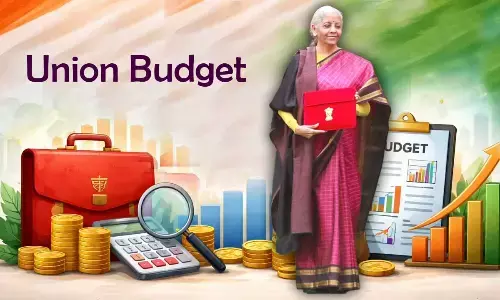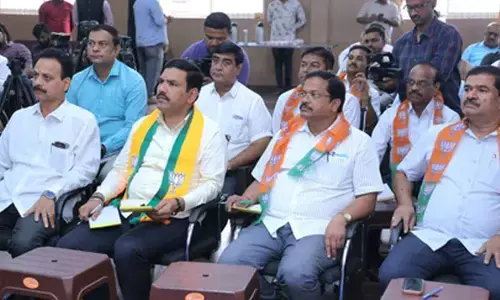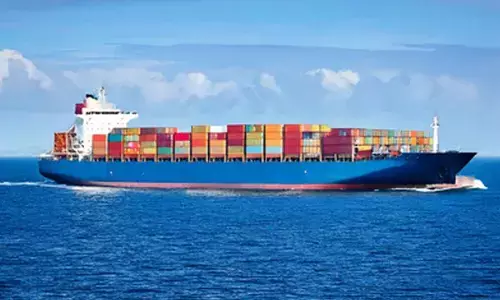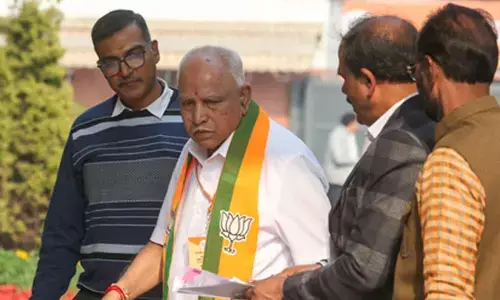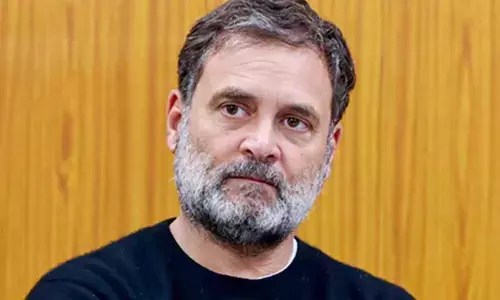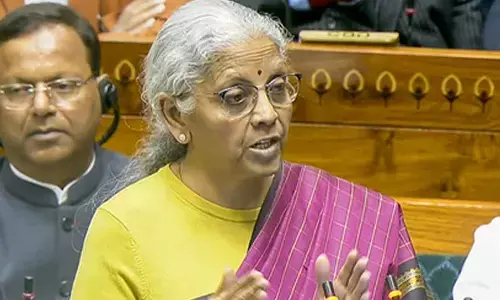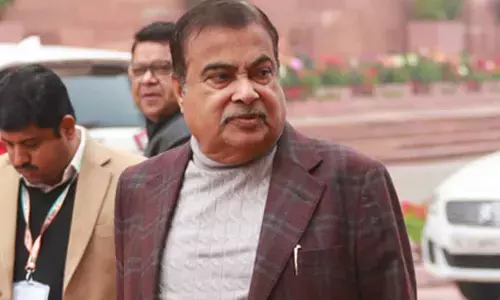For a world of peace, trust, and empathy!
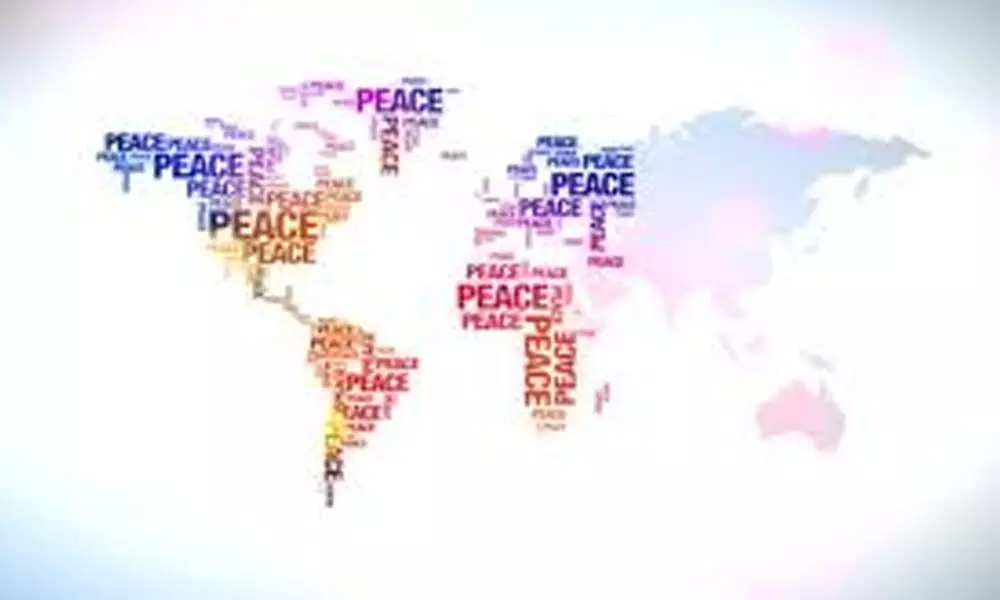
For a world of peace, trust, and empathy!
In the twilight of 2021, yet another most turbulent year for humankind, two big ticket international events set an agenda for the New Year 2022 with an aim of making the world a better place to live.
In the twilight of 2021, yet another most turbulent year for humankind, two big ticket international events set an agenda for the New Year 2022 with an aim of making the world a better place to live. The first-ever "Summit for Democracy" organised by the USA virtually on December 9 and 10, 2021 and the Nobel Peace Prize Award presentation ceremony held in Oslo, Norway, physically on December 10, 2021 touched upon many critical uncomfortable issues to be fixed collectively on the lines of the universal medical war waged against the dreaded Covid-19 pandemic.
Summit for Democracy
Even as the international community is still struggling hard to find out a working definition for 'democracy' and a good number of autocratic governments is conveniently attributing their diabolic, draconian acts to safeguard this mythical concept, the US President Joe Biden hosted the virtual summit by bringing together world leaders, civil society and the private sector of his choice to "set forth an affirmative agenda for democratic renewal and to tackle the greatest threats faced by democracies today through collective action."
The widely believed notion of democracy (of the people, by the people, for the people) taken from Abraham Lincoln's Gettysburg address of 1863 proved to be a big joke given the electoral malpractices, anti-people policies, corrupt acts of the governments all over the world. If measured on three very basic non-economic indices-free and fair elections, freedom of expression, respect for human rights, I am sure no country in the world can claim that it is truly democratic. The International Institute of Democracy and Electoral Assistance noted that more than half of all democracies have experienced a decline in at least one aspect of their democracy over the last 10 years.
We grew up mentioning in every essay writing and elocution competition that 'India is the world's largest democracy' and the champion of the concept of 'unity in diversity' with a lot of pride and a sense personal worth but our democracy is, alas, consistently taking ranking battering now-a-days. The Economist Intelligence Unit recently described India as 'a flawed democracy' and our country has slipped two places to 53rd position in its annual Democracy Index.
The US-based non-profit organisation, Freedom House, in its annual report on global political rights and liberties, downgraded India's status from "a free democracy" to "a partially-free democracy". A Sweden-based V-Dem Institute, in its report on democracy, observed that India is now an 'electoral autocracy.' No applauses and no full marks notwithstanding the fact that the free India is turning 75!
Do we, in fact, need any international agency to rank our country's quality of democracy when we have the first-hand experience? Driven by five Cs (communal ideologies, caste calculations, criminal politicians, corrupt elected representatives-bureaucrats, corporate lobbies), politics has become a profession of crooks and business of rascals and scoundrels. They pay Rs.6,000 to Rs.10,000 per vote in a by-election. They show castles in the air every morning, evening and night. They cook up impractical schemes. They don't spare dissent. They supress protests with an iron hand. They spend thousands in politics to make crores after assuming power. The gullible voters are in innovative electoral traps while the intelligentsia and academia are preferring to look the other way. Two pillars-Executive and Legislature-are carrying out a joint operation under the nose of the third pillar-Judiciary, the only saving grace. The fourth pillar-media- is manufacturing consent for the masters.The ground realities seek to refute the grand claims that ours is a vibrant and chaotic democracy.
However, our Prime Minister Narendra Modi, delivering the national statement at the Democracy Summit, said that India would be happy to share its expertise in holding free and fair elections, and in enhancing transparency in all areas of governance through innovative digital solutions.He called upon the international community to jointly shape global norms for technology such as "social media and cryptocurrencies" so that they are used to empower democracy, "not undermine it".
The Summit for Democracy, the major international event in the last two COVID-hit years, sadly, created a fresh round of heated exchanges between the two superpowers-USA and China. Not happy with the invitation extended to Taiwan, China accused the Biden government of using democracy 'as a weapon of mass destruction to stoke division and confrontation.' To counter the moves of the Biden administration, the Communist government has come up with its own definition to democracy in a white paper (titled: "China: Democracy that Works").
For the first time, I have seen China presenting the world its democratic credentials at length. "Democracy is not a decorative ornament, but an instrument for addressing the issues that concern the people…There is no fixed model of democracy; it manifests itself in many forms. Assessing the myriad political systems in the world against a single yardstick and examining diverse political structures in monochrome are in themselves undemocratic…In the richly diverse world, democracy comes in many forms. China's democracy is thriving alongside those of other countries in the garden of civilizations," it maintained.
Pakistan, the fifth largest country in the world, chose to abstain from the Summit saying that it looked forward to engaging with the US on democracy 'at an opportune time in the future.' This is seen as a move to please China. In an open appreciation for not attending the summit, a Chinese diplomat termed Pakistan as 'a real iron brother.' Russia has seen the Summit as an attempt to exhibit the US's hegemony. The role of the United Nations, the umbrella organisation of all countries in the world,was reduced to almost nil.
Nobel winner's concern
The speech of Maria Ressa, one of the two independent journalists who shared this year's Nobel Peace Prize, laid bare the real villains of the international politics. She squarely blamed the US-based technology giantsfor 'allowing a virus of lies to infect each of us, pitting us against each other, bringing out our fears, anger, hate, and setting the stage for the rise of authoritarians and dictators around the world'with their god-like power.
The greatest need today, according to her, is to transform that hate and violence, the toxic sludge that's coursing through our information ecosystem, prioritised by American internet companies that make more money by spreading that hate and triggering the worst in us.
We are witnessing the ill-impact of infodemic, too much information including false or misleading information in digital and physical environments to cause confusion, mistrust while undermining the spirting of democracy. This is what Maria termed as 'an invisible atom bomb' that has exploded in our information ecosystem. In order to live up to the concept of democracy, the world, as suggested by the Philippine journalist, must act as it did after Hiroshima.
"Like that time, we need to create new institutions, like the United Nations, and new codes stating our values, like the Universal Declaration of Human Rights, to prevent humanity from doing its worse. It's an arms race in the information ecosystem. To stop that requires a multilateral approach that all of us must be part of. It begins by restoring facts," was the clarion call given by her.
I would like to round up this piece with the concluding words of Maria's hearth-touching speech at Oslo: 'Please just close your eyes for just a moment, and imagine the world as it should be. A world of peace, trust, and empathy, bringing out the best that we can be. Open your eyes. Now go, we have to make it happen. Please, let's hold the line together.'
(The author, a PhD in Communication and Journalism, is a senior journalist, journalism educator and communication consultant)








